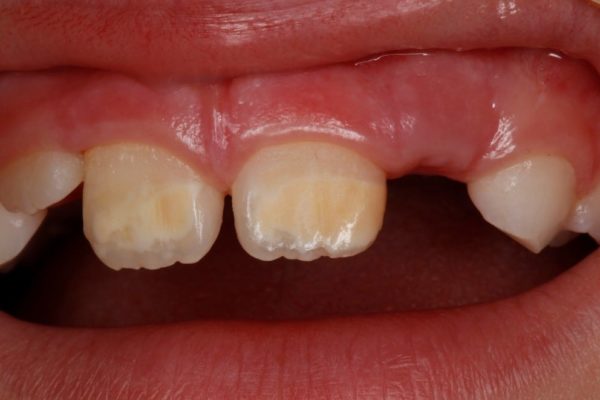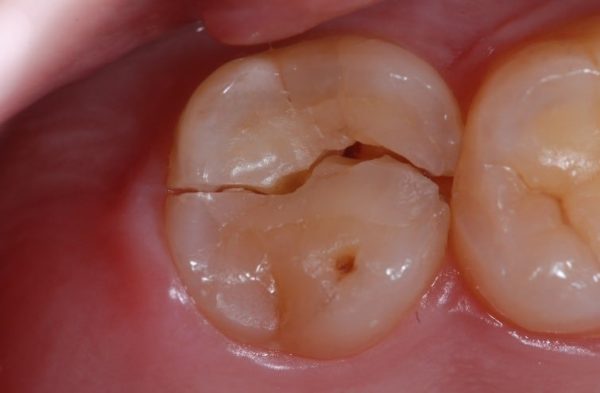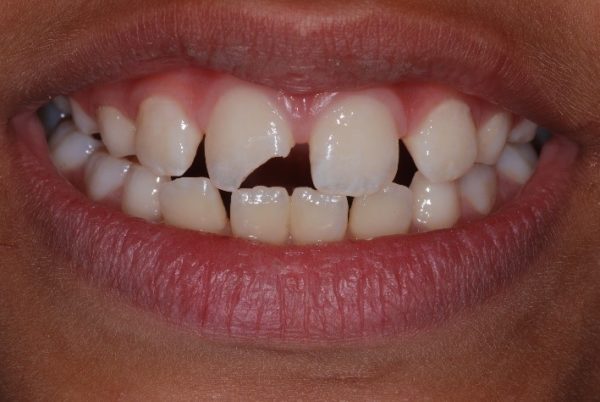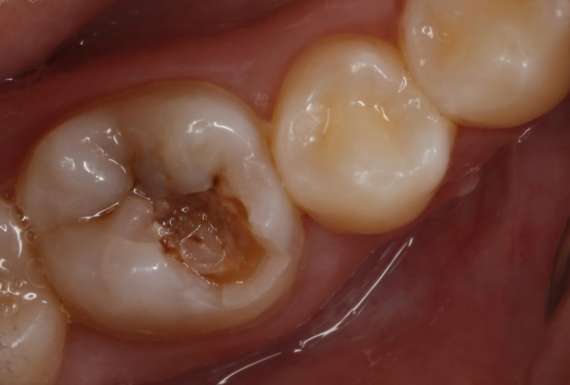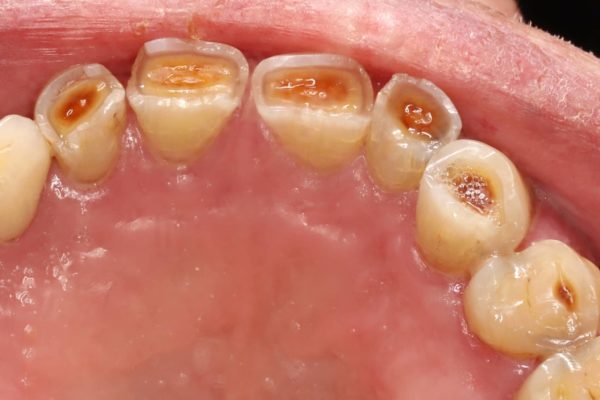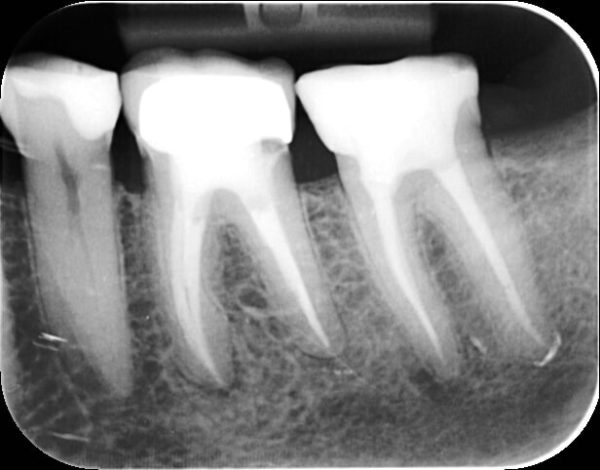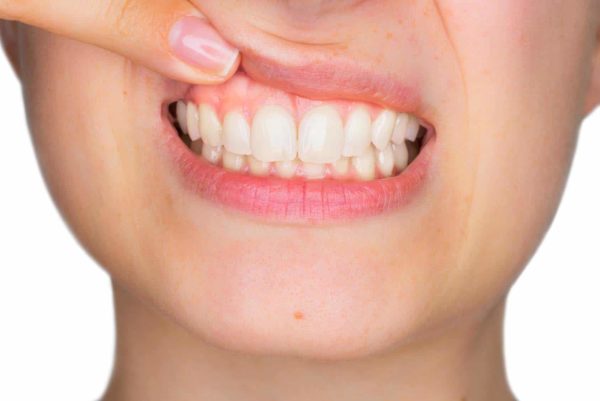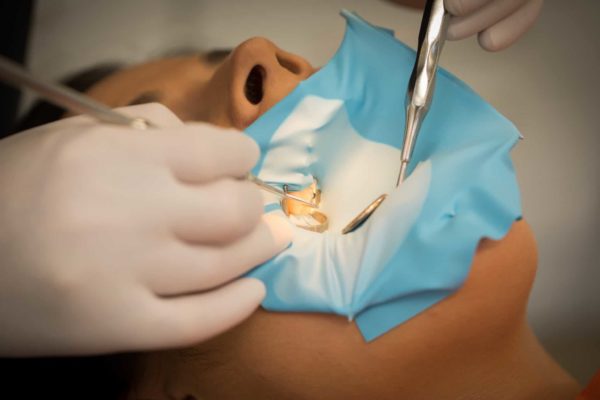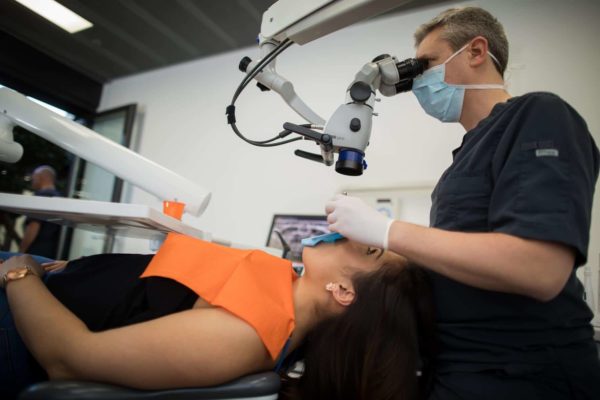Broken teeth
Broken teeth, technically known as "dental fractures", are common and occur in both adults and children. They can sometimes conceal more severe damage (nerve or tooth roots). For this reason, we strongly advise you to seek medical advice if you suspect or suffer from a broken tooth.

When should you see a dentist about a broken tooth?
A broken tooth doesn’t have to hurt… sometimes a tooth fracture is completely asymptomatic and painless. It can sometimes create only sensitivity to cold contact, and can sometimes be extremely painful and rapidly develop into a voluminous dental abscess. We advise you to consult a dentist in Geneva as soon as possible for any suspected broken tooth or fractured tooth. It is also regrettable to let an asymptomatic dental fracture evolve, which can lead to further oral damage in the long term.
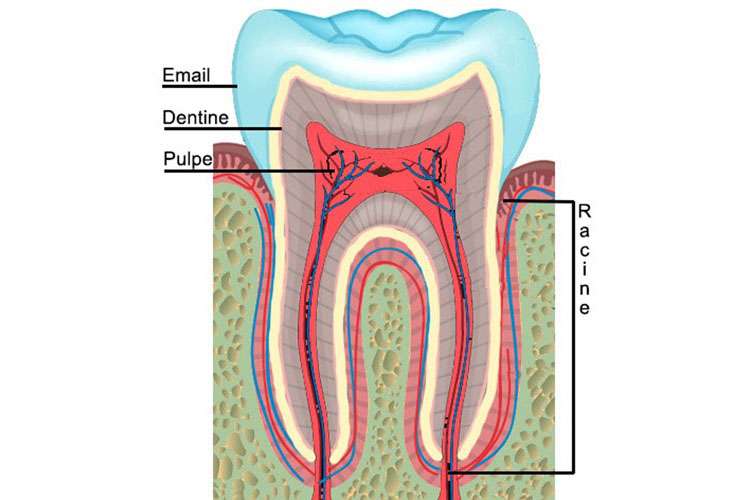
A little anatomy to understand dental fractures
The tooth is made up of different layers according to this pattern, and fracture can range from a simple chip of enamel to nerve or root damage. The more extensive the fracture, the more severe the symptoms. So, whatever the size of the fracture, we strongly recommend an appointment for diagnosis and assessment A dentist will diagnose the fracture by means of a clinical examination and one or more X-rays. The dentist will then suggest the appropriate treatment based on the diagnosis.
What types of dental fractures are there?
Definition
Symptomatology
Treatment
What causes dental fractures?
Watch out!!!
In the event of an accident or loss of a dental fragment, retrieve it, store it in milk and consult a dentist as a matter of urgency!
